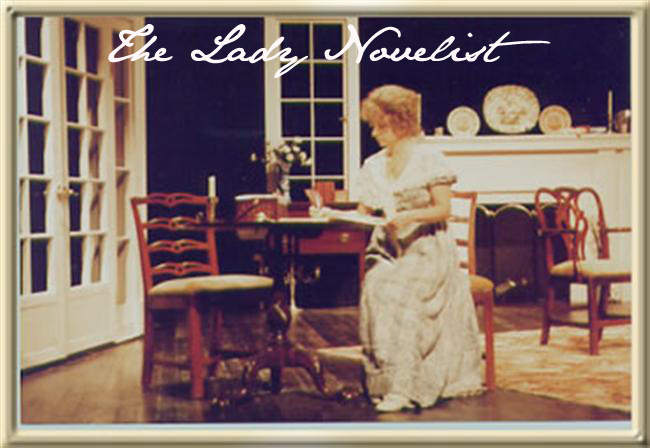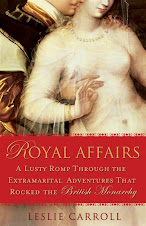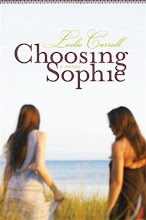
And welcome to the inaugural guest blog on this site! I'm so happy to welcome Georgie Lee, whose historical romance, LADY'S WAGER, was just released this month.
Lady's Wager
A Traditional Regency Romanceby Georgie Lee. Now Available from Cerridwen Press http://www.cerridwenpress.com/
A Traditional Regency Romanceby Georgie Lee. Now Available from Cerridwen Press http://www.cerridwenpress.com/
Charlotte Stuart is a head-strong heiress dedicated to charitable causes who publicly disdains marriage while secretly pining for love. Edward Woodcliff is a stubborn Viscount who feigns poverty in an effort to find a woman who loves him and not his inheritance.Sparks fly when these two intractable people meet but can they let down their guards long enough to admit their love for one another? All seems hopeless until Edward challenges Charlotte to a wager. If he wins, he wins her hand in marriage. If he loses, then Charlotte is free of him. Charlotte accepts the wager only to lose her hand and her heart to Edward. Now she must put aside her doubts about his intentions long enough to let Edward in to her life and admit that he is the man of her dreams.
LADY'S WAGER is set in 1803 Regency London. How did you become interested in this time period? What you love about it?
I’ve always been a British history buff and I enjoy the books of Jane Austen and the various film adaptations. So it seemed natural to write something set in historic London. The Regency is one of my favorite time periods because of the elegance and manners, not to mention the titles and wealth. I know those manners covered up what could be a very harsh society but the delight of romantic fiction is the ability to enjoy a time period without the ugly reality.
What sparked this book? Was it a character? An historical event? A scene you just couldn’t get out of your head?
The opening scene where Charlotte rejects her Aunt’s suggestion to marry was the first scene to come to me and it set the tone for the rest of the story. I pictured the heroine, Charlotte Stuart, as an exuberant woman who doesn’t let life get her down and who doesn’t conform to all of society’s expectations. However, not conforming also causes her problems, especially when she meets Edward, the hero. By learning to make the compromises necessary to maintain a successful relationship, Charlotte grows and changes but she never loses her independent spirit.
Please share a bit about your writing process. Are you a pantser or a plotter? Do you write multiple drafts or clean up as you go?
Please share a bit about your writing process. Are you a pantser or a plotter? Do you write multiple drafts or clean up as you go?
I wish I could do more plotting but I’m afraid I’m a pantser. I quickly write the first draft and then go over it numerous times adding detail, plot elements, and characterization. I enjoy the editing process because that’s when I really get to know my characters and sometimes they take me in new directions. However, not knowing the full story before I start can be frustrating, especially when my characters stop talking to me. In those situations, I’ve learned to keep writing and to keep researching. One or the other will eventually spark a new idea and allow me to continue.
What do you like least about this period? Anything that constrained you or that you had to plot carefully around?
The two biggest constraints I ran into were chaperones and proper etiquette between the different classes and genders. I wanted Charlotte to maintain her spunk and chafe against convention but she still had to follow the Regency rules of etiquette. As a result, I had to add chaperones and change some scenes to bring the story more closely in line with Regency rules. The scene where Charlotte and her friend meet Beau Brummell and the Prince Regent in Bond Street best illustrates this. It was a challenge to write the scene in an era-appropriate way but in the end, I think I did a good job of combining Charlotte’s outward adherence to convention while portraying her interior irritation.
Did you have to do any major research for this book? Did you stumble across anything really interesting that you didn’t already know?
Did you have to do any major research for this book? Did you stumble across anything really interesting that you didn’t already know?
I wanted Charlotte to have an interest in something young Regency ladies normally eschewed. I’ve always enjoyed reading about medical history so I decided to give her an interest in medicine and hospitals. I had to do a great deal of research regarding 1803 medicine and the research helped me craft a number of scenes in the story.
One surprising fact I ran across in my research was the prevalence of maternity hospitals. They existed much earlier than most people realize. The General Lying-in Hospital in London was founded in 1739 and was later renamed Queen Charlotte’s Hospital in 1809 in honor of her generous patronage. I was also surprised to discover that nitrous oxide had been around since the 1770s and was originally used as a kind of snake oil cure-all or as a recreational drug. Although some physicians recognized its anesthetic properties, it wasn’t used as an anesthesia until the 1840s.
One surprising fact I ran across in my research was the prevalence of maternity hospitals. They existed much earlier than most people realize. The General Lying-in Hospital in London was founded in 1739 and was later renamed Queen Charlotte’s Hospital in 1809 in honor of her generous patronage. I was also surprised to discover that nitrous oxide had been around since the 1770s and was originally used as a kind of snake oil cure-all or as a recreational drug. Although some physicians recognized its anesthetic properties, it wasn’t used as an anesthesia until the 1840s.
Please tell us a bit about your background, and what led you to become a novelist.
I’ve been a professional writer for over ten years and started out writing marketing videos, public service announcements and promotional spots for a cable TV station in San Diego. I hold an MA in Screenwriting and I’m also a published poet. I’d read a lot of romance novels in college but I’d gotten away from them after graduation. When I started reading them again, I quickly remembered how much I enjoyed the mix of history and fiction. Without knowing very much about novel writing, I launched into my first book, a story set in ancient Egypt and quickly ran into a number of problems. Novel writing turned out to be very new territory for me and coming from a screenwriting background, I wasn’t used to writing description and interior monologue. I ended up abandoning the Egypt story and that’s when the idea for Lady’s Wager came to me. I learned a great deal writing the numerous drafts of Lady’s Wager and now the writing process goes much more smoothly.
What/Who do you like to read? And are you one of those authors who tends to avoid reading the same genre you’re currently writing in during the in-progress stages of your own novel?
I enjoy reading historical non-fiction and fiction, especially books about England and the ancient world. I tend to lean towards strange topics and often find myself reading about the plague or royal mistresses. It’s fun to experience all aspects of history, not just the more scholarly ones.
I will read other authors in my genre while I’m writing. Amanda Quick is one of my favorite Regency writers and it’s helpful for me to see how she and other writers handle certain situations. Also, reading good books inspires me to keep writing and helps me stay in the spirit of the era.
I will read other authors in my genre while I’m writing. Amanda Quick is one of my favorite Regency writers and it’s helpful for me to see how she and other writers handle certain situations. Also, reading good books inspires me to keep writing and helps me stay in the spirit of the era.
What are you planning to work on next?
I’m working on two projects at the moment. One is a historical set in 1721 Colonial Williamsburg and the other is a contemporary set in Los Angeles. The contemporary is fun because I can write without having to stop and research. The Colonial Williamsburg novel is presenting me with a whole new research challenge.
+for+blog+header+copy.jpg)




.jpg)
.jpg)





8 comments:
Hi Georgie!
Great cover and premise for a book. You have intrigued me. :-)
I enjoyed the interview, too!
Best wishes for great success,
Lynne
Hi Georgie! Great interview I can't wait to read the book!
:) Dana
Hiya, Georgie! Interesting interview! And best of luck with your Williamsburg book!
Cara
Hey, Georgie! Wonderful interview!
Best wishes!
:)Robin
Wonderful interview, Georgie and Leslie! The book sounds great. I can so relate to the challenges of of writing within the restrictions of Regency etiquette and yet still finding ways for your hero and heroine to interact and your story to develop. It's one reason I've had so many married or widowed heroines--it at least allows one to dispense with chaperones :-). On the other hand, all those conventions can create wonderful challenges for characters. I love heroines who rebel belieably!
Thanks everyone for your great comments!
Tracy, I know what you mean about writing widows. I made my Williamsburg heroine a widow in order to give her a little more freedom and a little more experience.
I, too, love stories about women who broke the rules. In fact, I write about some of the the real-life historical women who did it, although society didn't always treat them well for it. But I'm far more interested in heroines with experience of the world than the missish types. I guess it's because I can't relate to the latter.
Thanks to everyone for stopping by today! I hope you'll continue to visit here and add your two cents to my posts (it's not much fun to post to a vacuum -- it's like that "if a tree falls in the forest" zen koan), and to visit Georgie's blog as well in the future.
The book sounds wonderful, and I'm impressed with her research. Best of luck with your release!
Post a Comment